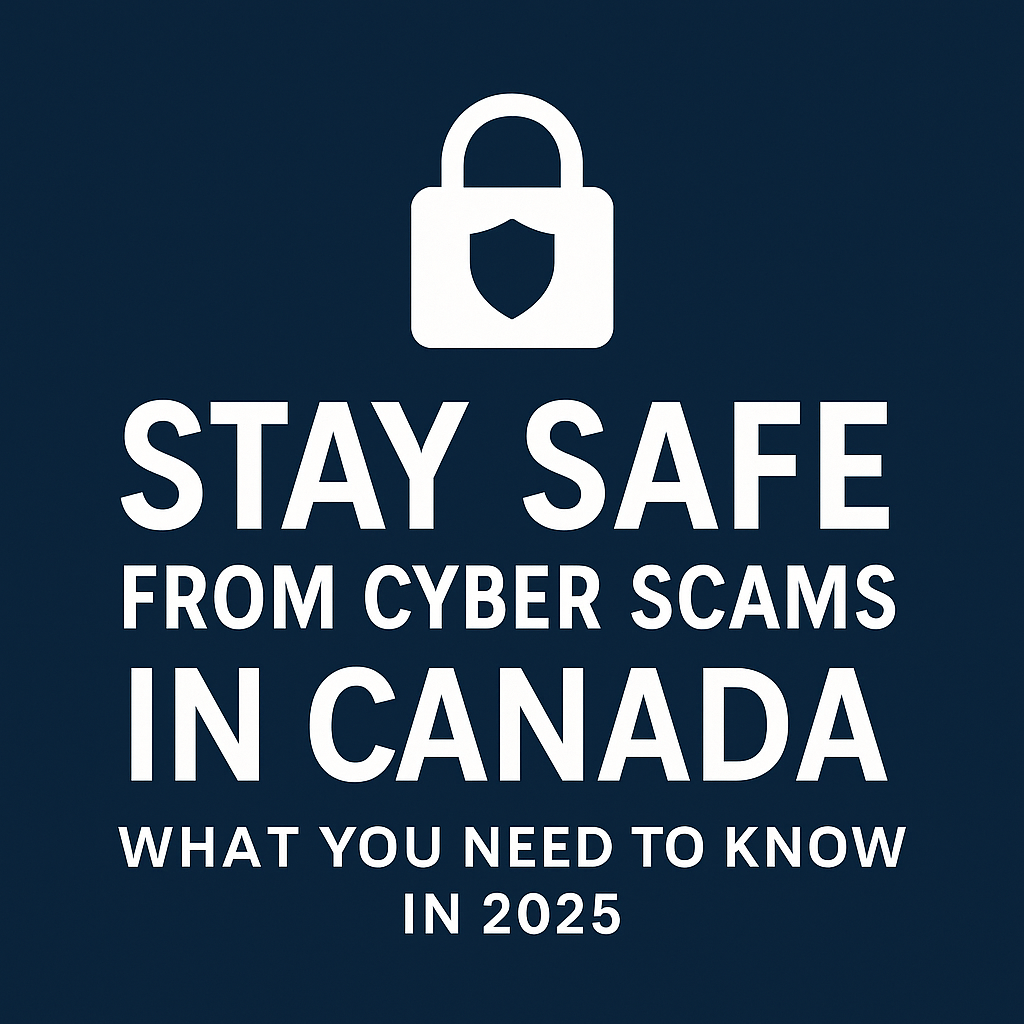Cybercrime is on the rise across Canada — and it’s not just targeting big corporations. Every day, ordinary Canadians are losing money, data, and trust due to increasingly sophisticated scams. From phishing emails and fake delivery texts to tech support hoaxes and crypto frauds, cybercriminals are constantly evolving their tactics.
If you've ever received a suspicious email or been asked to send gift cards or crypto by a stranger online, you're not alone.
As an IT professional with over 25 years of experience — and someone deeply involved in cybersecurity — I’m sharing practical, Canadian-specific advice to help you spot and avoid cyber scams.
What Are Cyber Scams?
Cyber scams are deceptive attempts to trick people into revealing sensitive information or sending money. The most common scams in Canada include:
🔐 Phishing & Smishing
Scammers send emails or text messages pretending to be from trusted sources — like your bank, CRA, or Canada Post. These messages often contain links that lead to fake websites or download malware.
Tip: Always hover over links before clicking. If in doubt, go directly to the organization's official website.
☎️ Tech Support Scams
You get a phone call claiming to be from Microsoft or another tech company saying your computer is infected. They’ll ask to access your system remotely — then install malware or demand payment.
Tip: Hang up. Microsoft and other real companies will never call you out of the blue.
❤️ Romance & Social Media Scams
Fraudsters use dating apps or Facebook to build fake relationships and eventually ask for money, often under the guise of an emergency or travel expenses.
Tip: Never send money to someone you haven’t met in person.
📦 Fake Delivery or Invoice Notices
You receive what looks like a message from Canada Post or Amazon saying a package couldn’t be delivered. Clicking the link can lead to phishing sites or malware.
Canadian Scam Trends You Should Know
According to Get Cyber Safe and the Canadian Anti-Fraud Centre, thousands of Canadians fall victim to fraud every year. In 2022 alone, over $530 million in reported losses were recorded — a 40% increase over the previous year.
How to Protect Yourself from Cyber Scams
- ✅ Don’t click on links or download attachments from unknown senders.
- ✅ Use multi-factor authentication (MFA) wherever possible.
- ✅ Keep your devices and software up to date.
- ✅ Use strong, unique passwords for every account.
- ✅ Be skeptical of unsolicited phone calls or urgent messages.
- ✅ Never pay anyone in gift cards or crypto unless you initiated the transaction.
- ✅ Report scams to the Canadian Anti-Fraud Centre or by texting suspicious messages to 7726 (SPAM).
How to Report a Scam in Canada
If you suspect fraud or have been scammed:
- Report it online at the Canadian Anti-Fraud Centre
- Call 1-888-495-8501
- Forward suspicious texts to 7726
- If it involves your bank or credit card, notify them immediately
Frequently Asked Questions (FAQ)
Q: How can I tell if an email or text is a scam?
A: Look for poor grammar, urgent language, and unfamiliar senders. Don't click links — instead, go directly to the source (e.g., your bank’s website).
Q: I think I clicked a bad link — what should I do?
A: Disconnect from the internet, run a malware scan, and change your passwords. If you're unsure, get professional help.
Q: Should I report scams even if I didn’t fall for them?
A: Yes! Reporting helps Canadian authorities gather intelligence and prevent future attacks.
Cyber Scam Awareness Events in Airdrie and Calgary
If you're part of a community group, school, senior centre, or local event in Airdrie, Calgary, or nearby, I offer free local awareness sessions focused on cyber scam prevention. These sessions are designed to educate and empower people of all ages to recognize scams and stay safe online.
If you’d like to schedule a talk or workshop, please contact me — I’m happy to support our community.
Final Thoughts
Cyber scams aren’t going away — they’re evolving. But with awareness, the right tools, and a little skepticism, you can stay ahead of fraudsters. Share this article with your family and friends, especially older loved ones who may be more vulnerable.
If you need help securing your devices, identifying suspicious emails, or want me to speak at an event, I’m here to help.
Stay safe out there. 🔒







